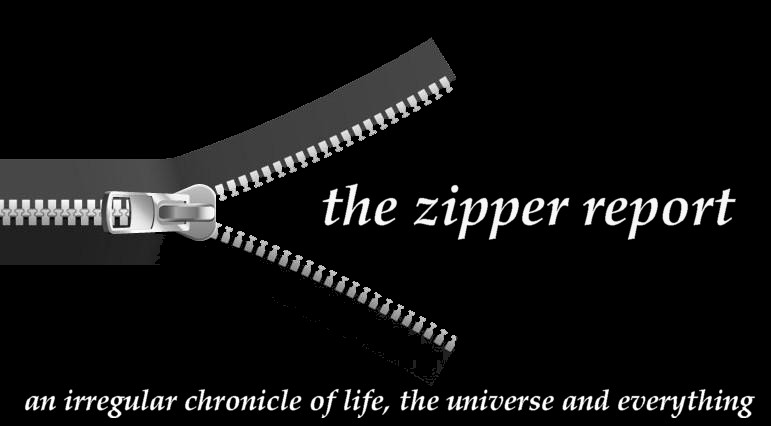A few Xmases ago, I was passing through U.S. Customs when an agent wanted to know what I did for a living. When I told her I was a writer, she asked, "Who do you write for?" I said, "Anybody whose cheques don't bounce!"
It was the only time I'd ever gotten a Customs agent to laugh.
I was never as lucky with accountants, especially the ones at CBC.
Once when Mother Corp was a few more weeks behind in their payments than usual, I called someone in the Accounting Department in Toronto to see if I could find out why.
"How much money are we talking about?" she asked. And I explained it was a mid-range, 3-figure sum.
"Oh, well!" she said, as if that explained everything. "That's chicken feed!"
"Buck, buck, buck!" I replied. "And you're talking to one hungry chicken!"
She didn't laugh; and it didn't speed things up, either.
Mind you, at CBQ (our local CBC station), we were blessed with a great accountant by the name of Frank Young. And Frank had a delightfully twisted sense of humour - which is why, I suppose, he was so anxious to help me in my campaign to get paid in live poultry for one of my radio items.
It all began when my producer urged me to do a piece on bartering (trading goods and services instead of using money) - one of those schemes that sounds good in theory but never pans out in practice.
The concept keeps popping up, generation after generation, is tried and rejected, only to show up again ten years or so down the road when the memory of failure has faded.
Knowing this, I took up the challenge reluctantly, determined (once and for all) to show that it could work or else entomb the concept forever.
"What if you paid me for the item with live hens?" I suggested.
Rae Katherine and I were living in the Bush back then. And we knew enough about farming not to want to hand over our lives to livestock. But fresh, organic, free-range eggs had a great appeal; and of all the beasts of the barnyard, laying hens seemed to us the easiest to keep.
At any rate, my producer loved the idea and quickly set the wheels in motion. He contacted Frank, who, in turn, contacted Toronto.
But Toronto was horrified!
They'd never gotten such an oddball request, they claimed. And there was no way they would ever agree to go along with this one.
For days, Frank pleaded with them.
He explained that they could simply transfer the funds to him, and he would take it upon himself to convert currency into poultry and present it to me. He promised they'd never see so much as a feather. And since I swore I'd never again ask for payment in kind, this could be considered an entertaining, one-off joke.
"Never!" cried the accountants.
So, as a course of last resort, Frank suggested I speak directly to one of the supervisors in Accounting and use all my considerable eloquence to plead the case.
I did, but I discovered that eloquence was not enough.
And in the end, the stubborn bureaucrats stood staunchly behind that favourite argument of all hide-bound institutions. "It would set a bad precedent," they insisted. "After all, what if everyone wanted to be paid in livestock?"
So, I had to resign myself to rejection.
But, for weeks afterward, I couldn't get one troubling image out of my head. I kept seeing Peter Gzowski, host of the network's flagship morning show, walking up Jarvis Street, driving a herd of cows and tailed by a gaggle of geese.
And I kept recalling what I used to tell my American relatives when they'd ask me what the CBC was like.
"It's like show business," I'd say, "if it were run by the Post Office."
(Scroll down for the first two of THE TWELVE DAYS OF CHRISTMAS, in case you missed them. Tomorrow: Day Three - "MORE CALLING BIRDS".)



No comments:
Post a Comment